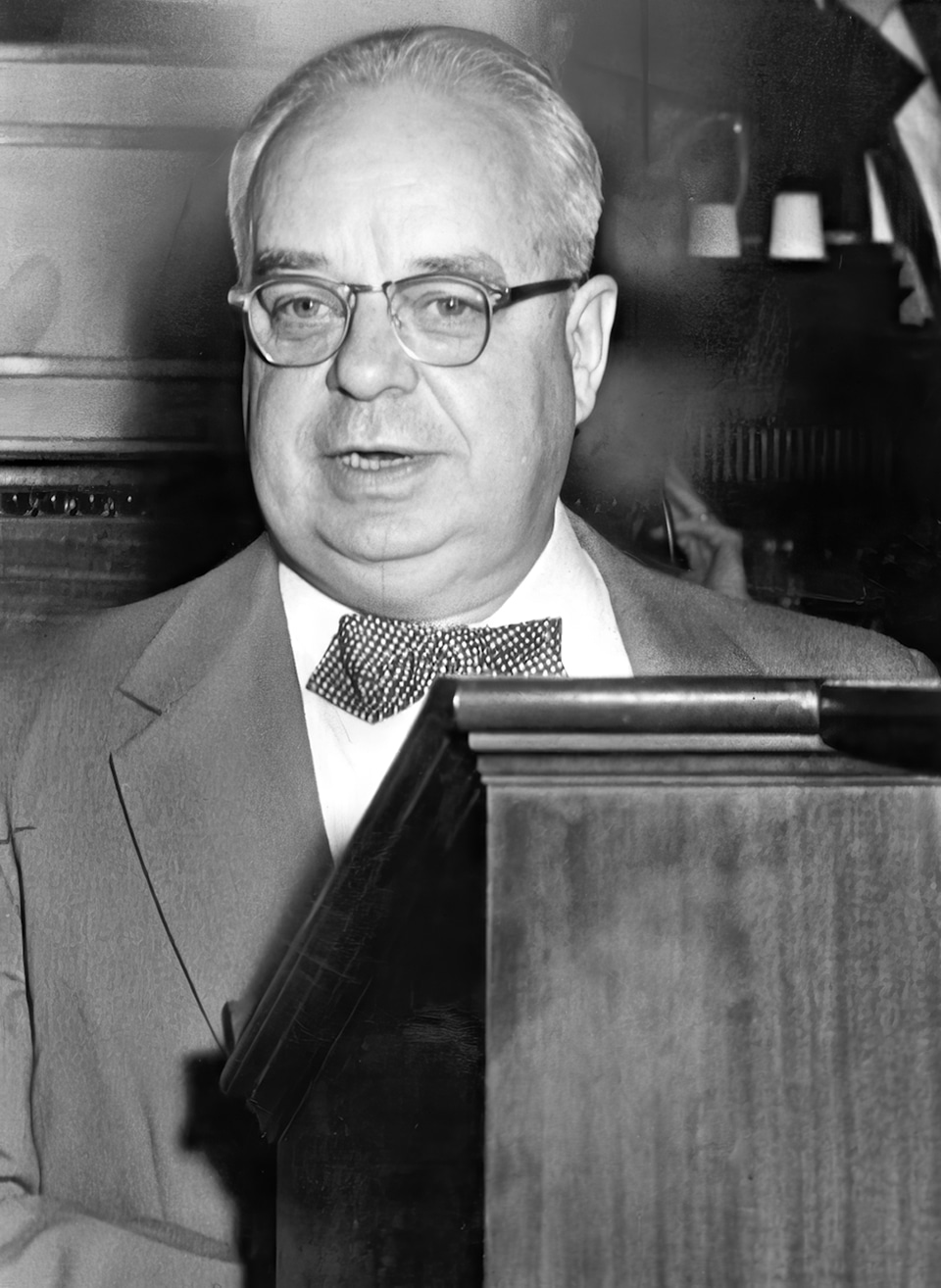RESOURCES
PEOPLE
J. Barrye Wall
1902-1992
J. Barrye Wall was a newspaper editor, political operative, and key figure in the implementation of Virginia’s policy of Massive Resistance to public school desegregation following the Brown v. Board of Education Supreme Court decisions in 1954 and 1955. As the longtime editor and publisher of the Farmville Herald, Wall was not only a vocal defender of segregation but also a behind-the-scenes strategist who used his newspaper and personal connections to resist integration efforts in Prince Edward County and beyond.
Wall’s editorial leadership of the Farmville Herald placed him at the ideological center of the resistance to desegregating Prince Edward County’s public schools. He portrayed court-ordered integration as a threat to Southern traditions and used his platform to publish editorials and opinion pieces that supported school closure, criticized the NAACP, and promoted private segregation academies. His newspaper became a key tool for shaping public opinion and bolstering white community solidarity against desegregation.
Wall was especially influential in the aftermath of the Brown rulings when Prince Edward County emerged as a national flashpoint. Rather than comply with federal mandates, local officials chose to shut down the entire public school system from 1959 to 1964, making it the only locality in the nation to do so. Wall strongly supported and helped engineer this policy, promoting the creation of the whites-only Prince Edward Academy and opposing the establishment of alternative schooling for Black students.
Wall was closely aligned with U.S. Senator Harry F. Byrd, Sr., the powerful leader of Virginia’s Democratic political machine known as the Byrd Organization. Byrd was the architect of Massive Resistance, a campaign to nullify the Supreme Court’s rulings through state laws and local defiance. Wall served as one of Byrd’s trusted allies and regional operatives. Their relationship was marked by mutual loyalty and shared segregationist convictions.
Behind the scenes, Wall acted as a liaison between Byrd and local officials in Prince Edward County. He helped draft and promote legal strategies designed to subvert desegregation, including laws that cut off state funding to integrated schools and authorized tuition grants for private academies. Wall’s access to both local leaders and Byrd’s inner circle allowed him to influence decisions at the state and county levels.
Though not a lawyer, Wall played a key role in coordinating public and legal responses to court orders mandating desegregation. He worked closely with attorneys and state officials in crafting legal arguments that delayed and obstructed integration. He supported legal challenges to federal enforcement of desegregation mandates and provided media coverage that framed these efforts as necessary to preserve constitutional government and local control.
Wall’s editorial line frequently echoed legal justifications developed by Massive Resistance strategists—emphasizing states’ rights, parental choice, and opposition to what he called “judicial tyranny.” In doing so, he helped normalize and legitimize legal resistance among white readers, further entrenching segregationist policies in public opinion.
